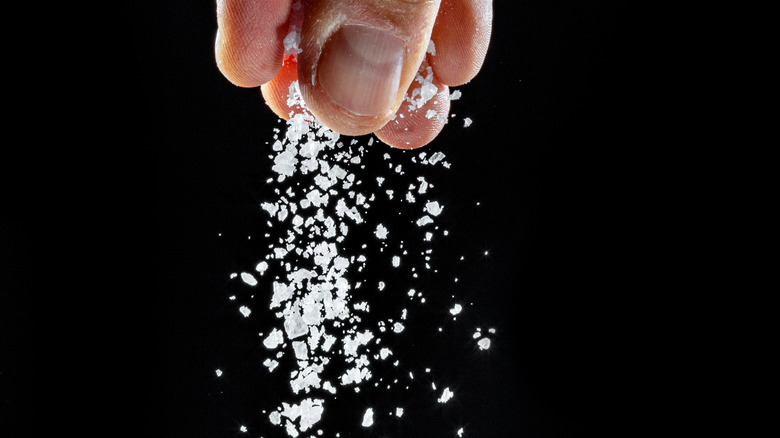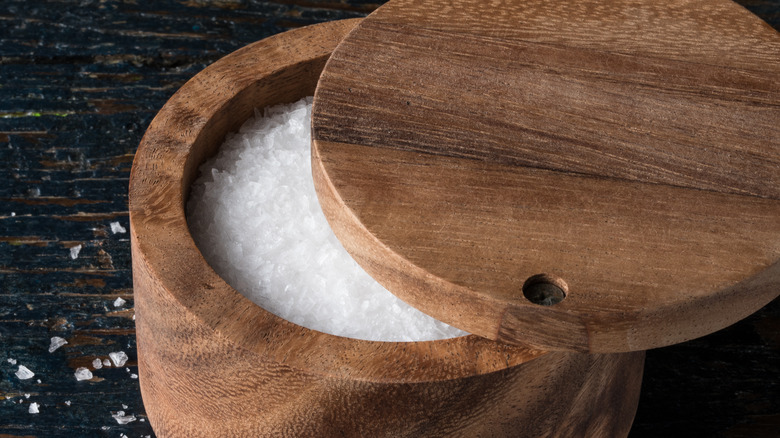How To Properly Pinch, Not Shake, Salt While Cooking
If you've ever watched any cooking show you know that chefs don't use salt shakers in the kitchen. Salt falling from a shaker is difficult to measure, and most salt shakers have holes too small to accommodate the large grains of kosher salt that chefs prefer to cook with. Instead, you'll see a chef confidently pinching salt with their fingers from a nearby container and then lifting their hand high over the item to be salted, evenly raining down a precise quantity of broken-up salt flakes on the surface. Every experienced chef knows by feel how much salt is in their pinch — it's a measurement that requires no second thought, and one you should get to know for yourself to become a more efficient cook.
Coarse-grain kosher salt contains no additives that might introduce unwanted flavors in a dish, and it's the perfect texture for pinching in the fingers. The flakes are easy to crush simply with the pinch of your fingers. So save your small crystals of table salt for baking, when it needs to easily dissolve into a batter.
Keep your salt container clean
Don't forget that you should always use clean hands when dipping into the salt container. Not only do you want to keep debris from your hands out of your salt, but it's possible to contaminate the salt with bacteria, and then spread that bacteria to other foods you salt. You might think that germs can't survive in salt, but research published in "Food Control" has proven that is not true for some microorganisms. If you'll be salting a chicken for roasting or a larger cut of meat, it's a good idea to pour out a small portion of salt to work from and then discard the remaining salt when you're done. But the main take-home is to practice good hygiene in the kitchen, washing hands before pinching your salt, and certainly after touching raw meats. Never touch raw meat and then put your hand in the salt bowl.
Don't forget to wash out your salt container before refilling it, too, and wipe the outside with warm, soapy water regularly to keep germs at bay. Washing your hands frequently between all cooking tasks is always a good idea, including when you reach for that nice pinch of salt.

